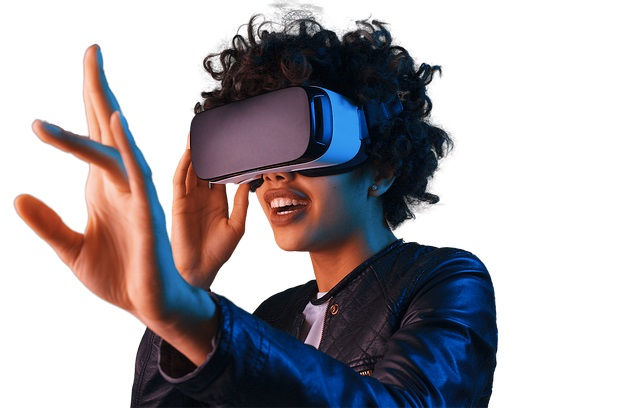Indian hospitals turn to VR for training, surgery prep
- Abhijit Ahaskar
- Jan 25, 2024
- 4 min read
Updated: Dec 14, 2024

Pratim Sengupta, Senior Consultant Nephrologist at Nephrocare, believes that VR will be an indispensable part of medical education in the near future.
"VR is a game-changer in healthcare education. It helps doctors and paramedic staff learn new skills and be prepared for various scenarios in virtual environments, helping them deliver better patient care," he added.
Nephrocare is using VR solutions from 8chili to train staff on performing dialysis and to improve patients’ understanding of kidney transplants, diabetes, and other chronic kidney diseases through VR.
The adoption of virtual reality (VR) in healthcare is still in its early stages in India due to high cost of hardware and lack of quality 3D content, but a number of companies are working to develop VR solutions for the Indian market, which are now being deployed at several hospitals across major cities for training, therapy and to prepare young doctors for complex surgeries.
A case in point is US based VR startup 8chili, which is developing VR-based training programs for nurses and surgeons. The firm has partnered with Apollo Hospitals to deploy a VR-based training program for nurses across multiple branches in India. It is also working on a VR training program for robotic surgery.
“Apollo got in touch with us for the training of nurses. Even those who are coming form colleges, hospitals have to invest in training to get them ready for the field, which takes a couple of months,” said Navaneeth Mohanan, Head of Sales and Business Development at 8chili.
Another startup QWR, from Mumbai, is working with a company that provides solutions for visualization of surgeries on 3D displays in operating rooms. “Currently, users had to move around to be in front of the 3D display unit. Now hospitals want to replace 3D displays with VR and we are providing them with a VR headset that can be used in operating rooms,” said c-founder Suraj Aiar.
His firm is also working with a startup called VR Upchaar, which is providing VR headsets for patients suffering from depression or PTSD to provide isolation therapy, added Aiar.
“VR can be used by trainees to learn the steps of surgery which can be standardized and hence made reproducible. This will give similar clinical outcomes irrespective of the skill and experience of the person performing the surgery,” said Rooma Sinha, Chief Gynecologist, Laparoscopic & Robotic Surgeon at Apollo Hospital Hyderabad.
That said, adoption of VR in healthcare in India has been limited as compared to other countries.
“There is a lot of adoption happening in the UK, US. South Korea has been a very fast mover,” said Aiar.
Cost is a major barrier, said Chinmaya P Chigateri, Founder & Principal Consultant at HealthMinds, a public health consulting firm.
Chigateri explained that there is not enough freely available content. “There is not enough content or freely available libraries. There are a few people who have captive content that can go up on Oculus or Holo lens, but the price is so prohibitive.”
He added that this is not because developers are trying to make a profit, but because it simply takes a lot of money to create high-quality VR experiences.
QWR’s Aiar points out that enterprise VR requires a lot of customisation. However, the VR headset that QWR is building to replace the 3D displays will cost Rs 1.5 lakh, which is still less than the 3D displays hospitals have been using and which cost Rs 3.5 lakh.
Antony Prashant, Partner at Deloitte India, concurs that earlier they were trained physically on medical equipment, which can be costly. “Everyone can’t invest in equipment and train every person. Equipment cost is also very high,” said Prashant.
To solve the content problem, firms such as 8chili are providing tools that allow doctors to create training content for VR on their own.
“We have modules where you can show immersive videos of how it is done by a senior staff member. The Apollo themselves record and create these scenarios using authoring tools that we have provided to them,” said Mohanan.
He added that robotic surgeons at Apollo are building teaching models using their systems for handling and maneuvering the robotic equipment.
He explained that doctors can record robotic procedures and then use 3D models with voice over and annotations to create interactive training experiences. This allows robotic fellows to study operations procedures in a safe and realistic environment.
His firm is encouraging senior surgeons to build a library of these training modules in VR.
Though adoption has been limited, it is gathering momentum as more hospitals and medical institutes are in talks with VR solution providers to use them.
“Some of the hospitals are already running trials for this. Many large private hospitals in India have started exploring it,” said Deloitte’s Prashant.
Another VR startup AjnaLens is also in conversation with several hospitals and medical colleges. “These hospitals are primarily interested in applications like training and visualization. For eg. training of doctors, nurses, using medical equipment, procedures,” said Abhijit Patil, Co-founder and COO, AjnaLens.
Patil added that his firm is building some proprietary artificial intelligence (AI) tools through which developers will be able to create photorealistic VR-based training experiences faster.
“VR will go a long way in preoperative preparation of a surgical procedure,” concurred Apollo Hospital’s Sinha.
Image credit: Pixabay